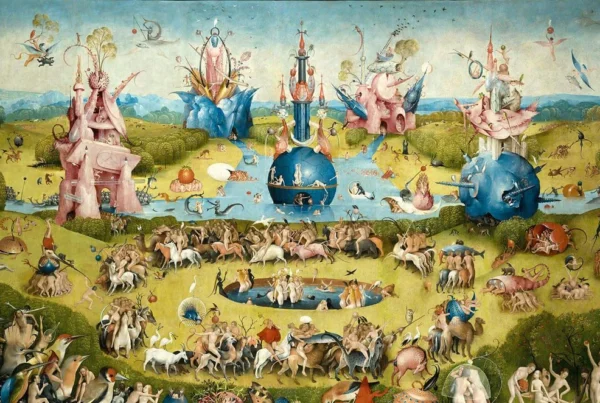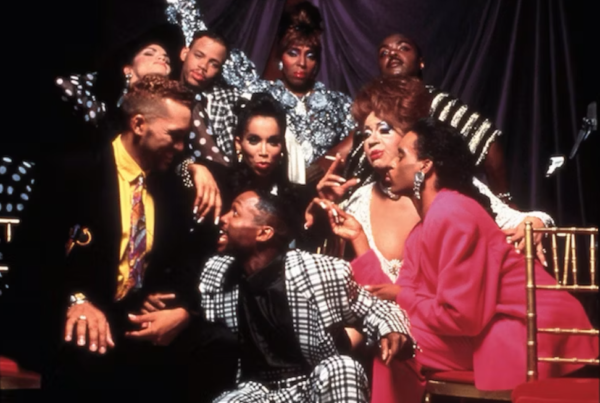Unfortunately, everything you suspected about politicians is true…
Political games have long entertained us. The thrill of following heroes or villain-like figures through an environment of skewed morals and power imbalances is a long-time favorite of audiences.
Nominated for 8 Academy Awards, Vice (2018) promises a deep delve into the American politics of the Bush era. As historical movies and biopics saturate our cinemas and TV screens, Vice has two rather uncommon features. The first is its presentation of recent history that your high school teachers probably did not mention, claiming they had too much material to cover. The second is the fact that its principal character is not somebody the audience should root for.
The feature film presents the ascension into the American political landscape of Dick Cheney, a pragmatic Representative from Wyoming who becomes White House Chief of Staff, Secretary of Defense and ultimately, Vice President. While the last function he occupied is traditionally seen as having a symbolic role, Cheney is remembered, among other things, for having garnered more decision-making power than any of his predecessors and even successors.
In the movie, Cheney has no clear moral compass – his search for power is priority number one, rather than the struggle to implement a political agenda. He starts off as the protégé of Donald Rumsfeld and later rises to the ranks to the point where the roles are reversed. This accumulation of power is a formidable feat, if one turns a blind eye to Cheney’s complete disregard for morals.
Vice is the kind of movie that does not let the viewer brush off the consequences of decisions made by high-up, pragmatic Washington bureaucrats. Instead, its goal is to show glimpses of the havoc they wreaked in the lives of everyday people on the other side of the world. Vice does not forget for a second that the viewer was most likely alive during the events, reminding us that we tend to lose sight of the dark side of our own democratic institutions.
Dick Cheney played George W. Bush masterfully, depicted in the film with Sam Rockwell’s performance that makes a buffoon out of the 43rd president of the United States. He is clueless, handing out power to Cheney willingly. He and his staff pose no problems to Cheney and his team’s gradual concentration of power. Yet it is quite erroneous to attribute the US invasion of Iraq only to the Vice President’s schemes. We cannot ignore how Bush takes the waging of war so lightly and lets himself be manipulated. We must also remember that other actors agreed to this move, namely the US Congress. The House voted 297 to 133 for the authorization of military action in Iraq and the Senate voted 77 to 23. Cheney is a slimy individual, but is it useful for Americans, when addressing the flaws in their politics, to pin the blame on a single person, rather than the flaws of the democratic system itself?
Vice assumes a slightly unconventional storytelling: the narrator is omniscient, but also a character in the movie affected by Cheney’s choices in the most personal way. He is sent to Iraq and Afghanistan and his heart ends up pumping Cheney’s blood and keeping him alive. Moreover, halfway through the movie, credits roll, stoking confusion by fooling the viewer with an alternate ending. One can appreciate this search for a more unique storytelling voice, but this creative narrative is sometimes confusing and goes in too many directions. Its different devices – the narrator, the fake-credits, the superpositions of glimpses of pop culture – are not cohesive and feel superfluous at times. However they do mimic the sardonic humor of present-day internet culture.
All in all, while not the most precious gem of the political biopic genre, Vice does feel fresh. It includes Cheney’s pragmatic politics, but also tender moments with his family. Even so, the film maintains a vengeful tone that does not pretend to be unbiased. Overall, the movie will leave you feeling like the world is racing towards its end and our politicians are here to add fuel to the flames.
Ioana Plesea is a first year in the Euro-American Program. Hailing from Romania, she loves the arts and ranting about Eastern Europe.
Cover Photo: a still from the film
Other posts that may interest you:
- The Price of Art
- Bears and Birds: Memories of Political Violence
- Soldiers, Oriental Pop, and the New Wave
Discover more from The Sundial Press
Subscribe to get the latest posts sent to your email.





